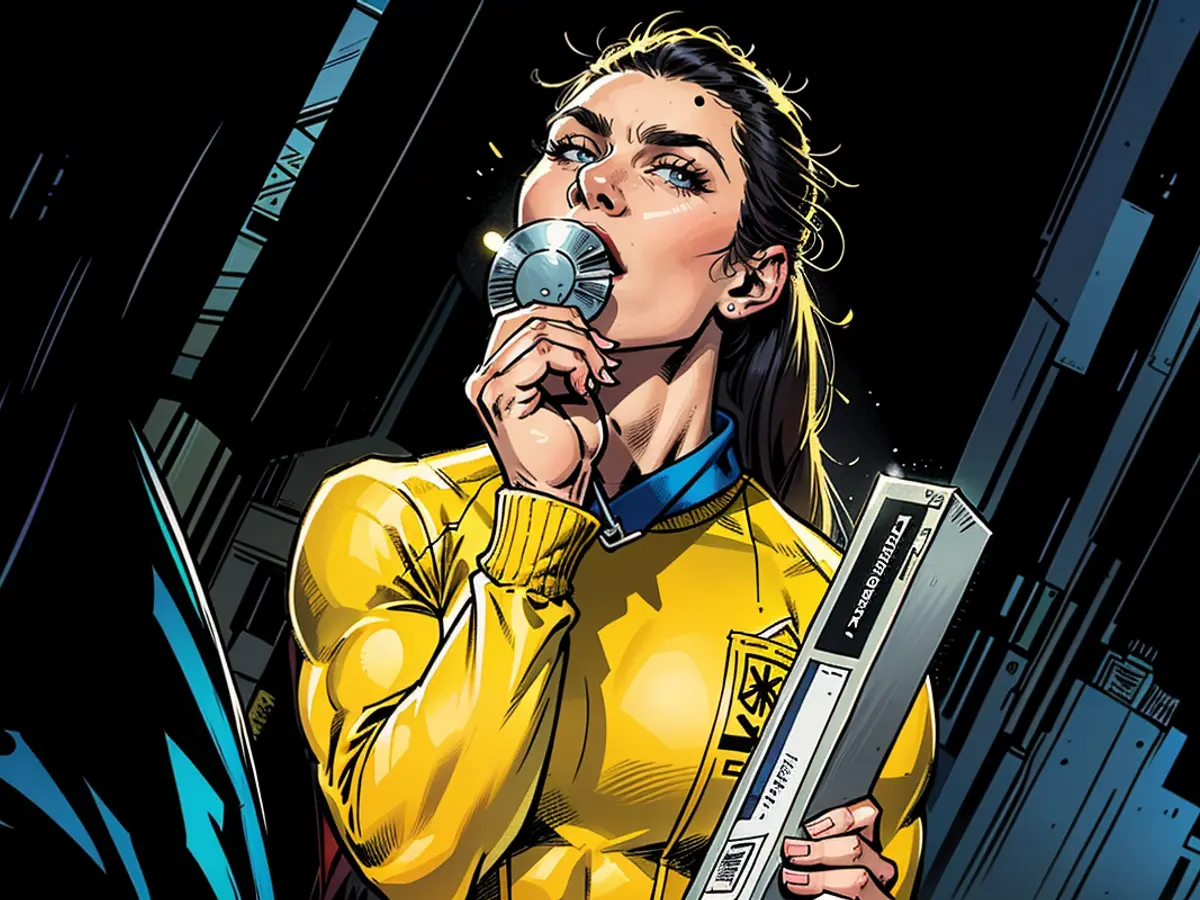One year after Eklat, Ukrainian woman wins dramatically
It's Ukraine's first medal at the Paris Olympics: Fencer Olha Charlan wins bronze - in a highly dramatic duel. The 33-year-old uses big words after her success. Last year, she made headlines due to a scandal at the World Championships.
Olha Charlan sank to her knees after the final hit, then let her tears flow. "I dedicate this medal to the whole of Ukraine," said the five-time fencing world champion after her comeback victory in the women's sabre final, which brought her homeland its first medal in Paris. Then she looked into the camera and said: "I dedicate this success to the athletes who could not come here because they were killed by Russia."
These were the usual clear words from the 33-year-old, who had traveled to the Olympics as the greatest hope of the war-torn country and delivered bronze as expected. And how: she was 5:11 behind against Choi Sebin from South Korea and won 15:14 - a comeback with symbolic power. "I am Ukrainian. We have the strength, we will always have the strength. We will always fight," said the 2008 Olympic champion.
Victories like Charlan's are what Ukraine hopes for in Paris. The country wants to show strength to the world. While only 15 Russian athletes are barely visible as neutral individual athletes, Ukraine is using the big stage as best it can.
Box champion Usyk on site
This also applies to the Ukrainian house in the 19th arrondissement. "The will to win" is written on the wall there, "the will to win" - the double meaning is no coincidence. Even the destroyed tribune of the stadium in Kharkiv, which has been traveling through Germany since the European Football Championship, is on display there. The horrors of the war are repeatedly addressed on stage.
That's why Alexander Usyk is on site. The box champion, who will face Tyson Fury again in December, makes no secret of it. The appearances at the Olympics are "very important for my country, because we are in the middle of a war," says the heavyweight champion: "The athletes who are here now must say what is happening there."
Even on Parliament Square in London, a work of art honoring the Ukrainian athletes who were killed was unveiled just before the Olympics. Almost 500 are said to have been killed, including weightlifter Oleksandr Pjeljeschenko, who won gold in Rio in 2016.
Refused handshake at the World Championships
Charlan also meant Pjeljeschenko when she spoke after her bronze triumph. The fencer had already caused a stir last year at the World Championships in Milan when she refused to shake hands with her Russian opponent Anna Smirnova, as provided for by the tournament rules. Charlan was disqualified, and her case caused an international stir. Thomas Bach, President of the International Olympic Committee, then guaranteed Charlan an Olympic start.
An opportunity she used impressively. "No matter what color the medal is," she said, overjoyed: "For me, it's gold."
The bronze medal win by Olha Charlan in the women's sabre final not only brought Ukraine its first medal in Paris but also served as a powerful symbol against the attack on Ukraine, as she dedicated her success to her fellow athletes who couldn't participate due to Russia's actions.
Alexander Usyk, the Ukrainian box champion, emphasized the significance of the Olympics for his war-torn country, stating that it was "very important" for the athletes to speak out about the ongoing conflict in Ukraine.








